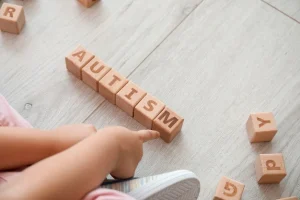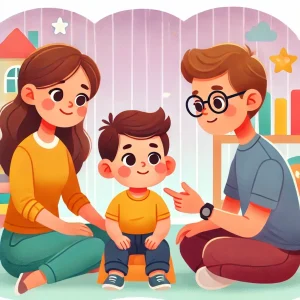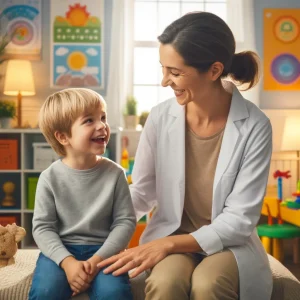How Long Does Effective Marriage Counseling Take?
By Wellness Hub
Last Updated: July 2, 2024
Marriage counseling offers a beacon of hope for couples striving to enhance their bond, resolve conflicts, and cultivate a healthier, more rewarding relationship. Whether grappling with communication breakdowns, trust issues, or simply seeking to deepen your connection, this form of therapy provides a structured and supportive setting to navigate these challenges. A pressing question many couples encounter when considering therapy is, “How long does effective marriage counseling take?” This query lacks a simple answer, as the duration varies widely depending on numerous factors. By understanding the typical timeline and the elements that influence it, you can set realistic expectations and maximize the benefits of your counseling journey.
Book Your Marriage Counseling Consultation Today!
Understanding Marriage Counseling Duration
The duration of marriage counseling varies for each couple due to the uniqueness of every relationship. Several factors influence the length of the process. Some couples might resolve their issues within a few sessions, while others require a more extended period to tackle deeper or more complex issues.
On average, couples attend between 12 to 25 sessions to notice significant improvements, with each session typically lasting about 50 minutes. Marriage counseling represents a journey toward long-term relationship health rather than a quick fix. The effort and commitment from both partners crucially determine the duration of the process.
Consistency plays a vital role in marriage counseling. Regular sessions, often starting weekly and then transitioning to bi-weekly or monthly as progress occurs, help maintain momentum and ensure continuous improvement. Skipping sessions or inconsistency can extend the process and delay the benefits of therapy.
Factors Influencing the Duration of Marriage Counseling
1. Goals of the Couple
The specific goals set by the couple greatly impact the duration of marriage counseling. If your goals are focused on resolving a few minor conflicts or improving communication, the process might be shorter. However, if you’re dealing with multiple issues, such as rebuilding trust after infidelity or addressing deep-seated resentment, the therapy might take longer. Clearly defining your goals with your therapist at the outset can help create a realistic timeline.
2. Intensity of Issues
The severity and complexity of the issues being addressed are crucial factors. For example, communication breakdowns can sometimes be resolved in a few sessions, whereas more severe problems like infidelity or long-term emotional neglect might require a more extended period. The more intense and ingrained the issues, the longer it may take to work through them effectively.
Also read: How to Overcome Infidelity in Marriage? | What if you found them guilty?
3. Individual Therapy
In some cases, individual therapy might be recommended alongside couples therapy. Personal issues, such as past trauma, mental health challenges, or individual behavioral patterns, can significantly impact the relationship. Addressing these issues individually can complement the couples’ therapy process and lead to more comprehensive and quicker results.
4. Consistency of Sessions
Regular attendance and consistency are vital for making progress in marriage counseling. Attending sessions consistently helps build momentum and ensures that the techniques and strategies discussed are applied regularly. Inconsistent attendance can disrupt the flow of therapy and extend the overall duration.
5. Commitment of Both Partners
The level of commitment from both partners plays a significant role in the success and duration of marriage counseling. If both partners are dedicated to the process, willing to make changes, and actively participate in sessions and homework, the counseling is likely to be more effective and possibly shorter. Lack of commitment or resistance from either partner can slow down progress and extend the duration.
6. Therapy Approach
Different therapists use various approaches and techniques, which can impact the duration of counseling. Some approaches may focus on quick conflict resolution and communication strategies, while others might delve deeper into underlying issues and emotional healing. Discussing the therapist’s approach in the initial sessions can give you a better understanding of what to expect.
Know more: Emotion-Focused Therapy: A Powerful Tool for Emotional Healing
Typical Duration and Frequency of Sessions
Typically, marriage counseling sessions last around 50 minutes. Couples usually start with weekly sessions to establish a foundation and address immediate concerns. As progress is made, the frequency of sessions may decrease to bi-weekly or monthly. On average, couples might attend between 12 to 25 sessions to see significant improvements. However, the exact number of sessions and their frequency can be tailored to the couple’s specific needs and progress.
Typical Duration and Frequency
| Session Stage | Frequency | Duration per Session | Total Sessions Needed |
|---|---|---|---|
| Initial Stage | Weekly | 50 minutes | 12-25 sessions. During this stage, the focus is on identifying core issues, setting goals, and developing initial strategies for improvement. Weekly sessions help build momentum and establish a solid foundation for therapy. |
| Intermediate | Bi-weekly | 50 minutes | As needed. As progress is made, the frequency of sessions can be reduced to bi-weekly. This stage involves refining techniques, addressing ongoing issues, and reinforcing positive changes. The exact number of sessions varies based on the couple’s progress. |
| Advanced Stage | Monthly | 50 minutes | As needed. Once significant progress has been achieved, sessions may be reduced to monthly. This stage focuses on maintaining improvements, addressing any new issues that arise, and ensuring long-term success. The number of sessions depends on the couple’s needs and stability. |
When to Seek Marriage Counseling
Recognizing the signs that indicate the need for marriage counseling is crucial for timely intervention. Common signs include frequent arguments, loss of intimacy, communication breakdowns, and feelings of disconnection. If you notice these issues persisting in your relationship, it might be time to consider counseling. Early intervention can prevent problems from escalating and make the therapy process more effective.
Factors Influencing Duration
| Factor | Impact on Duration |
|---|---|
| Goals of the Couple | More Goals, Longer Duration: Couples with multiple goals may need more sessions to address each issue thoroughly. Clear, focused goals can streamline the process. |
| Intensity of Issues | Severity Increases Time: Couples dealing with severe issues such as infidelity or deep-seated conflicts may require more extended therapy to rebuild trust and resolve conflicts. |
| Individual Therapy | Additional Sessions Needed: When individual issues significantly impact the relationship, separate therapy sessions for each partner might be necessary, extending the overall counseling duration. |
| Consistency of Sessions | Regular Attendance, Faster Progress: Attending sessions regularly and consistently helps maintain momentum and achieve results more quickly. Irregular attendance can slow down progress and lengthen the therapy duration. |
| Commitment of Partners | High Commitment, Faster Results: The more committed both partners are to the therapy process and to making changes, the quicker they are likely to see progress. Resistance or lack of commitment can hinder progress and extend the duration. |
| Therapy Approach | Varies by Method: Different therapeutic approaches (e.g., cognitive-behavioral therapy, emotionally focused therapy) have varying timelines. Some methods may achieve results faster, while others may take longer but provide deeper, long-lasting change. |
Special Considerations
Pre-Marriage Counseling
Pre-marriage counseling offers couples a proactive approach to building a strong foundation before tying the knot. This type of counseling helps partners address potential issues early, improve communication skills, and set realistic expectations for married life. By discussing important topics such as finances, family planning, and conflict resolution, couples can enter marriage with a clearer understanding of each other’s values and goals. This preparatory step can significantly reduce the likelihood of future conflicts and enhance the overall quality of the relationship.
Counseling After Separation
Marriage counseling can also be effective for couples considering reconciliation after a separation. During this time, therapy provides a neutral space for partners to explore their issues, rebuild trust, and develop healthier communication patterns. Whether the goal is to reunite or to gain closure and move forward individually, counseling can help both parties understand what went wrong and how to avoid similar problems in the future. For those hoping to reconcile, marriage counseling can be a crucial step in healing and rebuilding the relationship on a more solid foundation.
How to Maximize the Effectiveness of Marriage Counseling
To get the most out of marriage counseling, it’s important for couples to be proactive and engaged in the process. Here are some practical tips to help you maximize the benefits of your therapy sessions:
- Be Open and Honest
- Primary Keyword: How long does effective marriage counseling take
- One of the keys to successful marriage counseling is honesty. Be open about your feelings, thoughts, and concerns. Your therapist can only help if they have a clear understanding of the issues you’re facing. Transparency builds trust and paves the way for meaningful progress.
- Apply Learned Techniques in Daily Life
- Synonym Keywords: Couples therapy length, Duration of relationship counseling
- Marriage counseling is not just about what happens in the therapy room. It’s crucial to take the strategies and techniques discussed during sessions and apply them in your daily life. This consistent practice can help reinforce positive changes and improve your relationship dynamics.
- Stay Committed to the Process
- Consistency and commitment are essential. Attend all scheduled sessions and be punctual. Show your partner that you are dedicated to making the relationship work by fully participating in the therapy process.
- Do the Homework
- Therapists often assign homework or exercises to practice between sessions. These tasks are designed to help you apply what you’ve learned and continue making progress. Completing homework diligently can significantly enhance the effectiveness of the therapy.
- Communicate Regularly
- Keep the lines of communication open with your partner outside of therapy sessions. Regularly discussing your progress, challenges, and any new insights can help you stay aligned and focused on your goals.
- Set Realistic Expectations
- Understand that marriage counseling is a process that takes time. There won’t be an immediate, dramatic change after the first few sessions. Be patient and give the therapy time to work.
- Seek Support When Needed
- If individual issues arise that are affecting the marriage, consider seeking individual therapy in addition to couples therapy. Addressing personal challenges can complement and enhance the effectiveness of marriage counseling.
Conclusion
Marriage counseling at Wellness Hub offers more than just guidance; it’s a pathway to a healthier, more fulfilling relationship. By leveraging proven techniques like Cognitive-Behavioral Therapy, Emotionally Focused Therapy, and the Gottman Method, our expert therapists help couples enhance communication and resolve conflicts effectively. With significant positive changes reported by many, the effectiveness of our approach speaks for itself. If you’re considering marriage counseling, don’t wait. Early intervention can greatly influence the success of your sessions. Reach out today, visit our website, and discover how we can support you in building a stronger, more resilient partnership.
Frequently Asked Questions:
1. How long does effective marriage counseling take?
The duration of effective marriage counseling varies for each couple, typically ranging from 12 to 25 sessions. Each session usually lasts about 50 minutes. Factors such as the goals of the couple, the intensity of issues, and the commitment level of both partners can influence the overall length of therapy.
2. What factors influence the duration of marriage counseling?
Several factors influence the duration of marriage counseling, including the specific goals of the couple, the severity of issues being addressed, consistency of attending sessions, individual therapy needs, the commitment of both partners, and the therapy approach used by the therapist.
3. How often should we attend marriage counseling sessions?
Couples generally start with weekly sessions to establish a foundation and address immediate concerns. As progress is made, the frequency may decrease to bi-weekly or monthly sessions. The exact frequency will be tailored to the couple’s specific needs and progress.
4. Can marriage counseling help us if we are considering divorce?
Yes, marriage counseling can be very effective for couples considering divorce. It provides a neutral space to explore issues, rebuild trust, and develop healthier communication patterns. Even if reconciliation is not the goal, counseling can help both partners gain closure and move forward individually.
5. Is pre-marriage counseling beneficial?
Pre-marriage counseling is highly beneficial as it helps couples address potential issues early, improve communication skills, and set realistic expectations for married life. It can significantly reduce the likelihood of future conflicts and enhance the overall quality of the relationship.
6. What should we expect from a typical marriage counseling session?
A typical marriage counseling session lasts about 50 minutes. During these sessions, the therapist will work with the couple to identify issues, develop communication strategies, and apply techniques to improve the relationship. The number of sessions and their frequency will be tailored to the couple’s specific needs.
7. How can we maximize the effectiveness of marriage counseling?
To maximize the effectiveness of marriage counseling, be open and honest, apply learned techniques in daily life, stay committed to the process, complete any homework assignments, communicate regularly with your partner, and set realistic expectations. Consistent effort and dedication are key to successful therapy outcomes.
8. What if individual issues affect our marriage counseling progress?
If individual issues arise that affect marriage counseling progress, consider seeking individual therapy in addition to couples therapy. Addressing personal challenges can complement and enhance the effectiveness of marriage counseling, leading to more comprehensive and quicker results.
9. What are the signs that we need marriage counseling?
Signs that you might need marriage counseling include frequent arguments, loss of intimacy, communication breakdowns, feelings of disconnection, and unresolved conflicts. If these issues persist in your relationship, it might be time to consider seeking professional help to improve your relationship.
10. How do we choose the right marriage counselor for us?
Choosing the right marriage counselor involves considering their experience, approach, and specialization. Look for a counselor who has experience dealing with your specific issues, uses an approach that resonates with both partners, and has positive reviews or recommendations. It’s also important to feel comfortable and trust the counselor to create a safe and supportive environment for your therapy sessions.
About the Author:
Prapoorna Mangalampalli
M.Sc., M.A., (Dual Masters in Psychology & English) – Counselor (6+ years of experience)
Prapoorna is a skilled counselor with dual Master’s degrees in Psychology and English. With more than six years of professional experience, she specializes in providing various types of counseling, including online Therapy , Marital , Relationship, child, family, and career counseling. Prapoorna is part of the Wellness Hub team, where she contributes significantly to their mission. She values a team-based approach and is committed to innovation, compassion, and the success of her clients. Her diverse educational background and extensive experience enable her to offer insightful and effective counseling services that positively impact individuals and families.
Book your Free Consultation Today
Parent/Caregiver Info:
Client’s Details:
* Error Message









